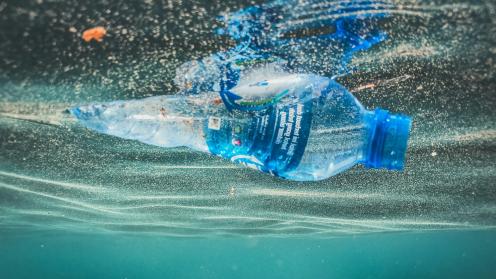“Plastics may last forever, but this INC should not!” And with this call, after over seven days of intense negotiations, the fourth session of the Intergovernmental Negotiating Committee (INC-4) to develop an international legally binding instrument (ILBI) on plastic pollution, including in the marine environment, ended in Ottawa, Canada.
During the closing plenary, INC Chair Luis Vayas Valdivieso (Ecuador) proposed, and delegates agreed to establish a legal drafting group to ensure legal clarity in the text of the future agreement. The Committee also established two intersessional expert groups to:
- develop an analysis of potential sources and means that could be mobilized, for implementation of the objectives of the instrument, including options for the establishment of a financial mechanism, alignment of financial flows, and catalyzing finance; and
- identify and analyze criteria and non-criteria based approaches with regards to plastic pollution and chemicals of concern in plastic products and product design, focusing on recyclability and reusability of plastic products and their uses and applications.
During the course of the day, delegates had considered and modified the streamlined parts of the Revised Draft Text, on issues related to just transition, the preamble, objective, scope, and the principles that will govern the new agreement, as well as the technical issues to be addressed in the future instrument. They reconvened in Contact Groups to hear progress reports from the Subgroup Co-Facilitators, and address next steps on the text, including that, using the validated streamlined texts from INC-4, delegates will engage in line-by-line textual negotiations at the next meeting of the INC.
In their discussions on problematic and avoidable plastics, delegates diverged on whether problematic and avoidable plastic products would be identified globally through common criteria and listed in annexes, national criteria guided by an annex, or at the national level. Different views also emerged on whether the measures would require and/or encourage: to “not allow,” phase-out, phase-down, gradually reduce, regulate, restrict the relevant products; and whether measures would address some or all of: manufacture, use, production, sale, distribution, and import or export.
In a final meeting on financing, the Subgroup members agreed not to reopen the Co-Facilitators' streamlined text for line-by-line negotiations. This text contained provisions for the establishment/designation of a financial mechanism and resource mobilization. These will be key components for the implementation of the future agreement, and, in order to strengthen the eventual provisions, will benefit from work within the intersessional period.
The two Contact Groups (on technical issues, and implementation measures) also closed early Monday evening, with the respective Co-Chairs forwarding the progress of their work to plenary, contained in the Co-Facilitators’ non-papers reflecting streamlined text addressed during the week. This work will form the basis for negotiations at INC-5.
Much work remains to be done to narrow the gaps in understanding, as well as bridge the divides on the scope and objective of the future treaty. This was evident as meetings to discuss the technical elements of the text diverged on almost all points of discussion, from problematic and avoidable plastics to product design, composition and performance.
The planned intersessional work is expected to ease delegates’ work at INC-5, although some feel it may not be enough. However, delegates were unable to agree on a proposal by the European Union to convene a resumed session of INC-4.
INC-4 closed at 3:17 am on Tuesday, 30 April 2024.
To receive free coverage of global environmental events delivered to your inbox, subscribe to the ENB Update newsletter.
All ENB photos are free to use with attribution. For INC-4 please use: Photo by IISD/ENB - Kiara Worth

















































































